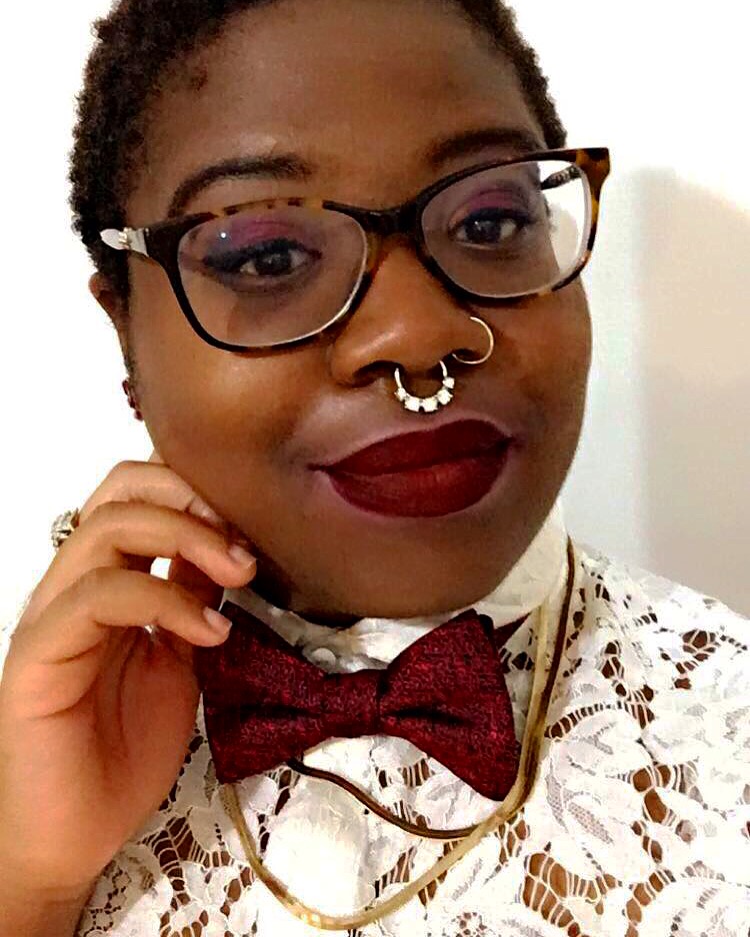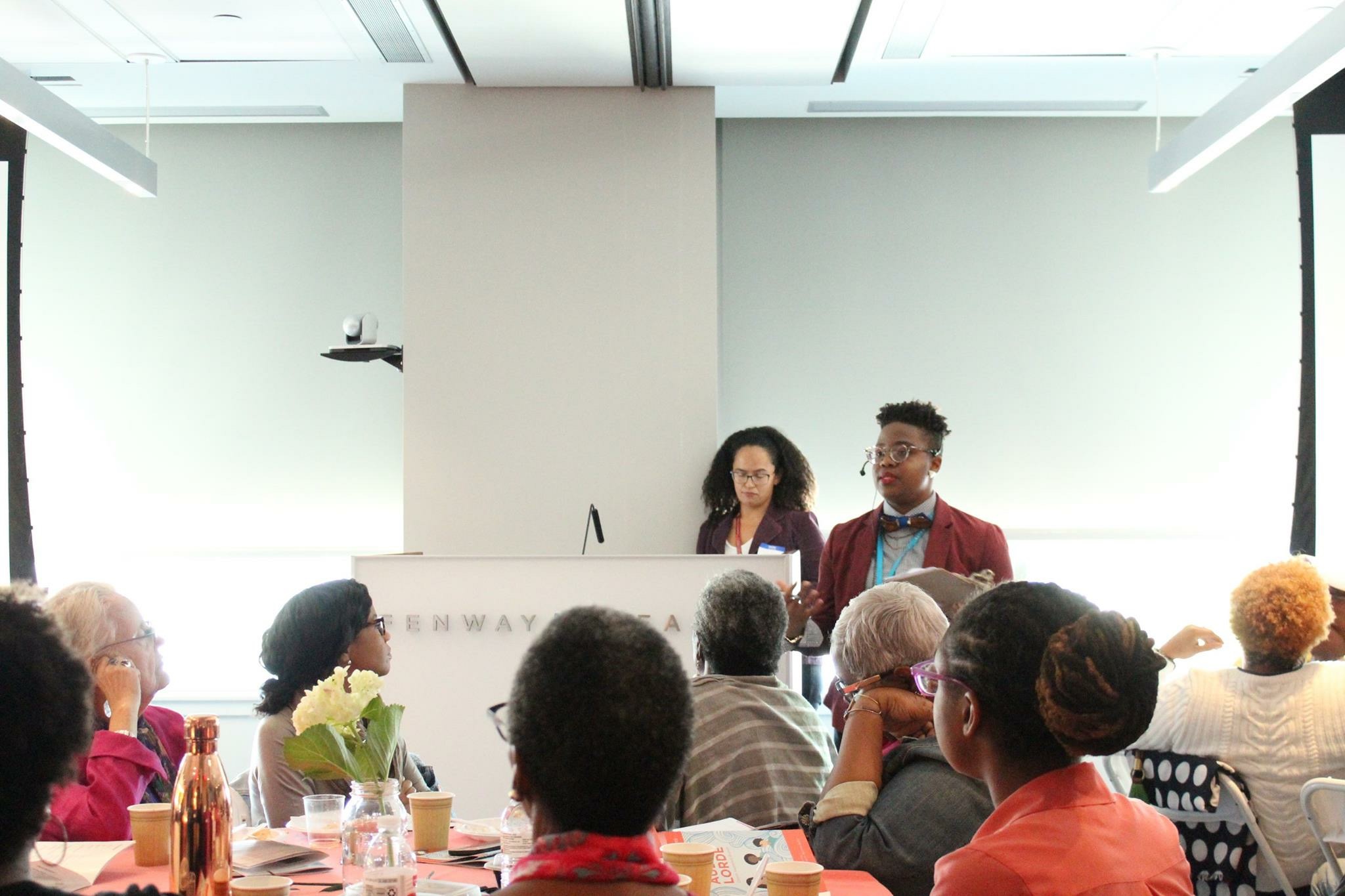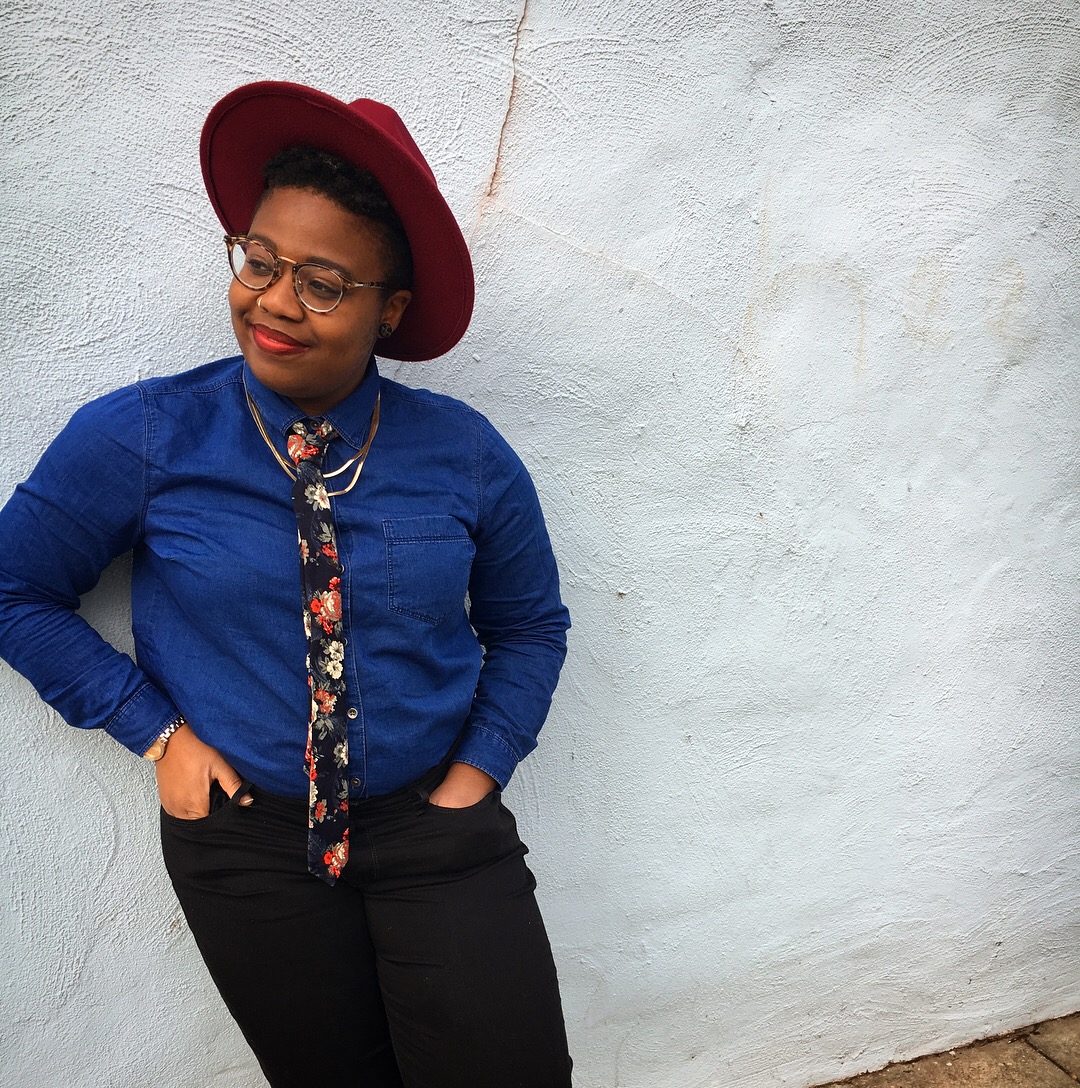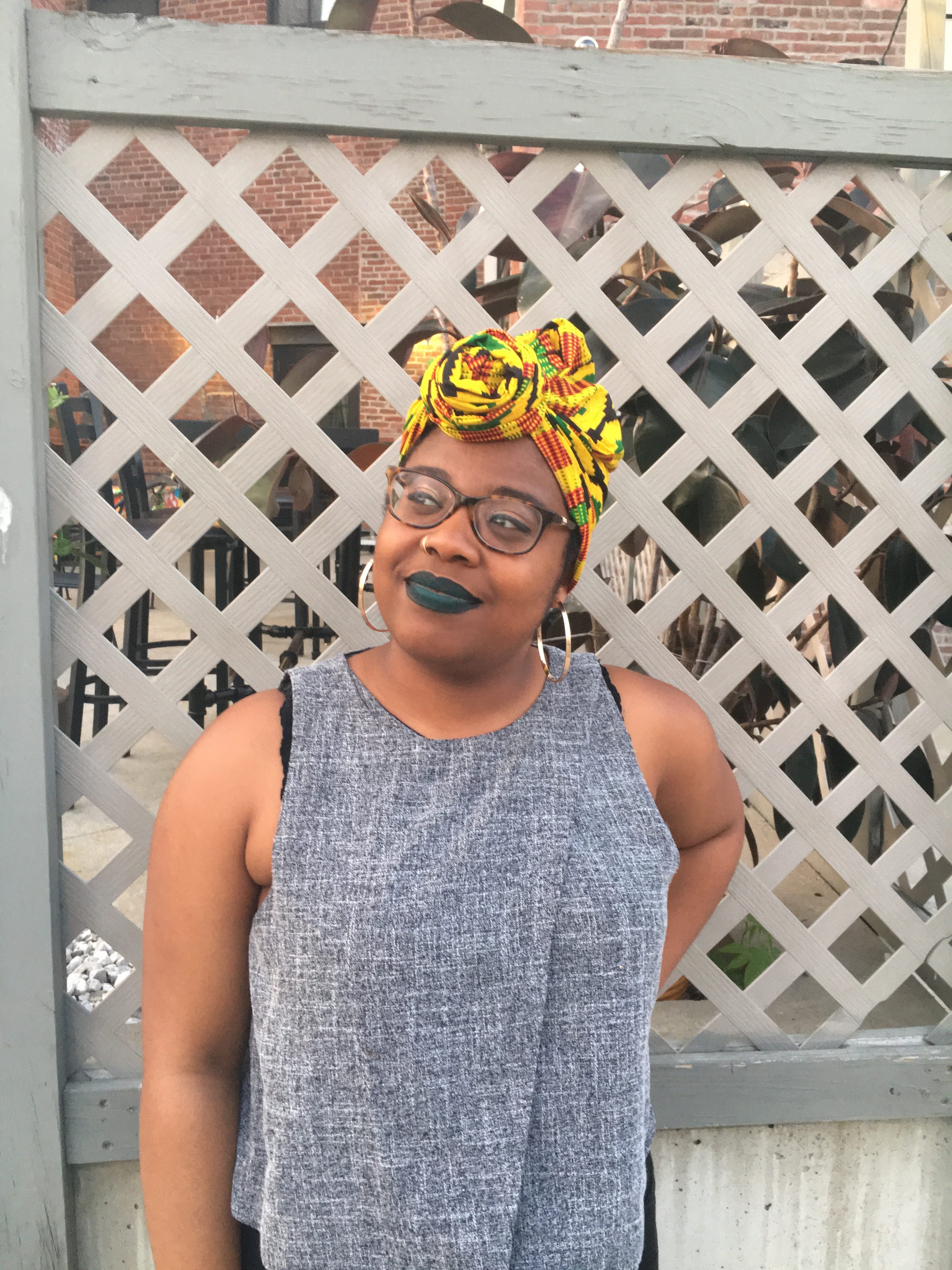
It is my pleasure to introduce the next “Femme Voices” feature, Tanekwah Hinds, a health educator and community organizer who uses her fashion choices to challenge the binary aesthetic. Not only does she have a great personal style, but she is also the Women’s Health Program Coordinator at Fenway Health, which is dedicated to the health of the LGBTQ+ community in Boston.
In this position, Tanekwah was honored with the Healthy Community Leadership Award from the Boston Alliance for Community Health (BACH) for all of her work the past year, which included organizing several events in the community. We asked Tanekwah about her work and the intersection between personal style, identity, and well-being. Click below for our interview with her!
Please introduce yourself. What is your name and where are you from? What are your pronouns/how do you identify?
My name is Tanekwah Hinds (she/her/hers) and I am a bisexual, femme-dapper, Jamaican-American woman community organizer, activist, and health educator. I am originally from Hartford, Connecticut, where both of my parents immigrated in the 90s. Growing up in a Jamaican household, of course, meant great food, lively conversations, and a connection to my ancestors. However, it also resulted in the suppression of my sexuality and gender expression.
The history of Jamaica and other non-European countries includes colonization by the West and their misogynistic, homophobic and transphobic rhetoric. This perspective not only protects the white colonizer but also Jamaican and black straight cisgender men who uphold the colonizer’s rhetoric. This pervasive oppression made it hard for me to explore my sexuality and gender expression as a young girl. It has been a journey to embrace my identity as a bisexual, femme-dapper, Jamaican-American woman community organizer, activist, and health educator.
Tell us a little bit about your position as the Women’s Health Program Coordinator at Fenway Health.
I currently work at Fenway Health, a community health center in Boston that supports the LGBTQ community through quality healthcare, education, research and advocacy. As the Women’s Health Program Coordinator here, I support the development of the Women’s Health Team, coordinate gender-inclusive educational opportunities for the Medical Department, plan outreach events for Boston LGBTQ+ community and manage a research project on contraception.
My favorite part about the job is community outreach and event planning. Through this community engagement, I partner with community organizations that support the intersectional identities of the Boston LGBTQ+ community, such as people of color, individuals with mental health illnesses, youth and older folks, and transgender individuals. Through these partnerships, I work with community leaders to empower and connect folks to resources at events, such as workshops, film screenings, and panels, that support their physical, mental, and social health. I have organized and partnered for events, such as the Audre Lorde Cancer Awareness Brunch, Culturally Competent Care for LGBTQ Survivors, Mental Health Panel for LGBTQ People of Color, and Queer Womxn’s Empowerment Series.

How long have you been working in public health? How and why did you start?
I first got involved with public health four years ago when I interned for the Office on Women’s Health, Department of Health and Human Services in Washington, D.C. Here, I studied the gendered and racial effect of HIV infection rates, particularly for women of color. From my work, I began to understand the effects of health disparities and social determinants of health on the lives of communities of color.
As I began to understand my identity more as a queer woman of color, I also began to take interest in the intersectionality of health disparities as it affects folks who hold multiple marginalized identities. This passion brought me to my work today at Fenway health, addressing the health disparities of LGBTQ+ people of color.
The first thing I noticed about you was your impeccable style. How did you develop it and how do you think this type of creative expression relates to your work?
I would describe my style as dapper-femme, sometimes skewing more on one spectrum than another. It all started when I wore my first bow-tie for my first Pride Parade while studying abroad in South Africa. From there, fashion became a form of self-art for me to experiment with the fluidity of my sexual orientation and gender expression. I particularly found an interest in mixing traditionally masculine clothes and accessories with a feminine touch. Floral button-ups, oversized sweaters, and patterned ties and bowties catch my eye in the men’s section. My feminine statement pieces include a bold lipstick and eyeshadow as well as geometric jewelry, headwraps, and long cat nails.
I love to go to Old Navy, Primark, and Marshalls for inexpensive finds; Express if I’m feeling bougie and Colourpop for a bold lipstick. I also like to support local and online black businesses, such as Peston, Bowtie Behavior, and Juvia’s Place.
I enjoy creating art through fashion in a way that masculinity and femininity can both exist and complement each other. There’s something empowering about boldly and unapologetically expressing your identity through fashion. This form of empowerment also shows up in my work. Not only by attending my events in style; but also creating opportunities for the LGBTQ community to feel empowered to express the fluidity and intersectionality of their identities.

Do you practice self-care? If so, what is your favorite self-care method?
I think, like other community organizers, I struggle with balancing my work and self-care. I hear so many other folks say the same thing. When I do make time for self-care, I believe my favorite form is being in my room by myself watching reality TV shows, particularly Love and Hip Hop. This activity, along with some take-out or home cooking, is really simple but really takes the cake for me. There is just something relaxing about having alone time and escaping the world through someone else’s reality. Other forms of self-care that I like include spending time with friends, attending art events centering queer and/or people of color, and cuddling bae.
Do you have any upcoming projects or goals?
My December project involves teaming up with Afrocentered Media, a media platform by Boston-based photographer and community organizer Tyahra Angus. Together, we are screening the film Rafiki and featuring a talkback panel of community organizers. Set in Kenya and directed by Wanuri Kahiu, the movie features a love story between two young women in a society that still bans homosexuality. The event will be Tuesday, December 4, 6-8:30 pm at Fenway Health, 10th Floor 1340 Boylston St, Boston, MA.
Beyond this event, I hope to continue to build my brand outside of my job by presenting at conferences, facilitating workshops, and fostering community collaboration. One passion project that I would love to explore more is my interest in fashion and identity.
How can we see your work/contact you/etc.?
You can contact me and/or check out my work on my website TanekwahHinds.com, which I hope to update more in 2019. Follow me on Instagram for fashion inspiration @Tanekwah. And check me out on Twitter for my original thoughts.


